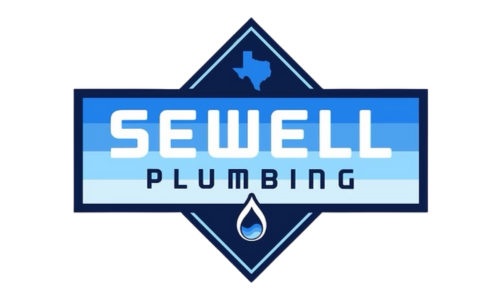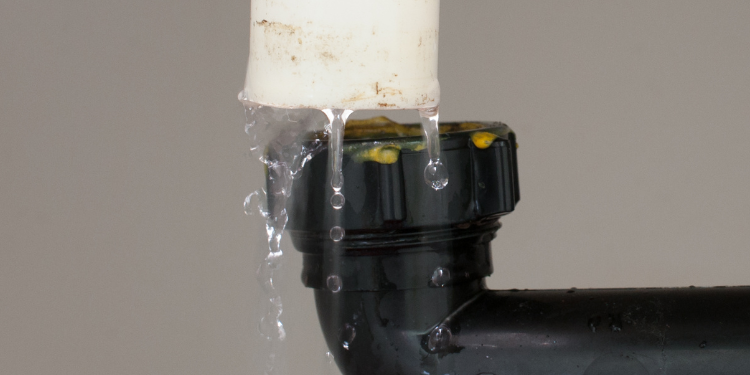Household plumbing leaks are more than just a minor inconvenience—they can lead to significant damage, costly repairs, and water waste if not promptly addressed. Understanding how to identify and fix these common issues is essential for maintaining a safe and efficient home. Whether it’s a dripping faucet, a leaking pipe, or a malfunctioning toilet, recognizing the signs early can prevent small problems from turning into major headaches. In this guide, we’ll walk you through the most common household plumbing leaks and provide you with practical steps to fix them, helping you protect your home and save money.
Key Takeaway: The key to managing household plumbing leaks is early detection and timely repair. By understanding the signs of common leaks and knowing how to address them, homeowners can prevent extensive water damage, reduce water waste, and maintain the integrity of their plumbing system.
Identifying Common Household Plumbing Leaks
Detecting household plumbing leaks early is crucial in preventing extensive water damage and high utility bills. There are several common types of leaks that homeowners should be aware of:
Dripping Faucets
One of the most common and easily noticeable plumbing leaks is a dripping faucet. The constant drip, while seemingly minor, can waste a significant amount of water over time. This type of leak is often caused by a worn-out washer or a faulty valve seat. Although it may seem like a small issue, a dripping faucet can lead to higher water bills and should be repaired as soon as possible.
Leaking Pipes
Leaking pipes can occur due to a variety of reasons, including corrosion, high water pressure, or damage to the pipe itself. These leaks are often hidden behind walls or under floors, making them more difficult to detect. Signs of leaking pipes may include damp spots on walls, ceilings, or floors, as well as a sudden decrease in water pressure. Early detection is key to preventing further damage to your home’s structure.
Running Toilets
A running toilet is another common household plumbing issue that can result in significant water waste. This problem is typically caused by a faulty flapper valve, which allows water to continuously flow from the tank to the bowl. In some cases, a running toilet can waste hundreds of gallons of water per day. If you notice that your toilet is constantly running, it’s important to address the issue immediately to prevent a spike in your water bill.
How to Fix Common Household Plumbing Leaks
Once you’ve identified a plumbing leak, the next step is to fix it. Fortunately, many common household plumbing leaks can be repaired with a few simple tools and a bit of know-how:
Repairing Dripping Faucets
To fix a dripping faucet, start by turning off the water supply to the affected faucet. Then, carefully disassemble the faucet to access the washer and valve seat. If the washer is worn out, replace it with a new one. If the valve seat is damaged, it may need to be re-ground or replaced. After making the necessary repairs, reassemble the faucet and turn the water supply back on to check for leaks.
Fixing Leaking Pipes
Fixing a leaking pipe depends on the location and severity of the leak. For small leaks, you may be able to use a pipe repair clamp or epoxy putty as a temporary fix. However, for larger leaks or damaged pipes, it’s best to replace the affected section of pipe. This may involve cutting out the damaged section and replacing it with a new piece of pipe. If you’re not comfortable making this repair yourself, it’s recommended to call a professional plumber.
Stopping a Running Toilet
To fix a running toilet, start by checking the flapper valve. If it’s worn out or not sealing properly, replace it with a new one. If the flapper valve is in good condition, check the fill valve and float arm to ensure they are functioning correctly. Adjusting the float arm or replacing the fill valve may resolve the issue. Once the repairs are made, test the toilet to ensure it stops running.
Preventing Future Plumbing Leaks
Preventing plumbing leaks before they start is the best way to avoid costly repairs and water damage. Here are some proactive steps you can take to keep your plumbing system in top shape:
Regular Maintenance
One of the best ways to prevent plumbing leaks is through regular maintenance. This includes inspecting faucets, pipes, and toilets for signs of wear and tear. Addressing minor issues before they become major problems can save you time and money in the long run. Additionally, scheduling regular inspections with a professional plumber can help catch potential issues early.
Monitoring Water Pressure
High water pressure is a common cause of plumbing leaks, particularly in older homes. Excessive pressure can cause pipes to crack or burst over time. Installing a pressure regulator on your main water line can help maintain a safe water pressure level throughout your home. Regularly checking your water pressure can also help you detect any sudden changes that may indicate a leak.
Upgrading Old Plumbing Fixtures
If your home has old or outdated plumbing fixtures, it may be time for an upgrade. Replacing old faucets, pipes, and toilets with newer, more efficient models can help prevent leaks and reduce your water usage. In addition to preventing leaks, upgrading your plumbing fixtures can also improve the overall efficiency of your home’s plumbing system.
Common Causes of Household Plumbing Leaks
Understanding the underlying causes of plumbing leaks can help you take preventive measures and avoid future problems. Here are some of the most common causes of household plumbing leaks:
Corrosion
Over time, metal pipes can corrode, leading to leaks. This is especially common in homes with older plumbing systems. Corrosion can be caused by a variety of factors, including the type of metal used in the pipes, the pH level of the water, and the presence of minerals in the water. Regular inspections can help detect corrosion early and prevent leaks from occurring.
Tree Roots
Tree roots can cause significant damage to underground pipes, leading to leaks. As trees grow, their roots can extend into the surrounding soil in search of water. If they encounter a pipe, they can penetrate it and cause it to crack or burst. This is more common in homes with older pipes made of clay or cast iron. To prevent this, consider having a professional inspect your underground pipes for any signs of damage.
Shifting Soil
Shifting soil can put pressure on underground pipes, causing them to crack or leak. This is particularly common in areas with expansive clay soils that expand and contract with changes in moisture levels. If you live in an area prone to shifting soil, it’s important to monitor your plumbing system for any signs of leaks or damage. Installing a flexible pipe system can help accommodate soil movement and reduce the risk of leaks.
The Role of Professional Plumbers in Fixing Leaks
While some plumbing leaks can be fixed with DIY methods, there are times when it’s best to call in a professional plumber. Here’s why professional plumbers are essential for fixing leaks:
Expert Diagnosis
Professional plumbers have the expertise and tools needed to accurately diagnose the cause of a plumbing leak. They can identify issues that may not be visible to the untrained eye, such as hidden leaks behind walls or underground. By accurately diagnosing the problem, a professional plumber can ensure that the leak is properly fixed the first time, preventing further damage.
Advanced Repair Techniques
Professional plumbers have access to advanced repair techniques and equipment that may not be available to homeowners. This includes specialized tools for detecting leaks, such as infrared cameras and moisture meters. Additionally, professional plumbers are trained to use these tools effectively, ensuring that the leak is repaired quickly and efficiently.
Peace of Mind
Hiring a professional plumber gives you peace of mind knowing that the job will be done right. Professional plumbers are licensed and insured, which means they have the qualifications and experience needed to handle any plumbing issue. If something goes wrong during the repair, you can rest assured that the plumber will take responsibility and fix the problem.
Answering Common Questions
- What should I do if I suspect a plumbing leak in my home? If you suspect a plumbing leak in your home, it’s important to act quickly. Start by turning off the water supply to the affected area and inspecting for visible signs of a leak, such as damp spots or water damage. If you’re unable to locate the source of the leak, consider calling a professional plumber for assistance.
- Can I fix a plumbing leak myself, or should I hire a professional? The answer depends on the severity and location of the leak. Minor leaks, such as a dripping faucet or a running toilet, can often be fixed with basic tools and some DIY know-how. However, more complex leaks, such as those in hidden pipes or underground, should be addressed by a professional plumber to prevent further damage.
- How can I prevent future plumbing leaks in my home? Regular maintenance, monitoring water pressure, and upgrading old plumbing fixtures are all effective ways to prevent future plumbing leaks. Additionally, being aware of the common causes of leaks, such as corrosion, tree roots, and shifting soil, can help you take proactive measures to protect your plumbing system.
The Impact of Water Damage on Your Home
Water damage caused by plumbing leaks can have a significant impact on your home. It can lead to mold growth, structural damage, and even health issues if left untreated. Mold thrives in damp environments, and a plumbing leak provides the perfect conditions for it to grow. If water damage goes unnoticed, it can weaken the structure of your home, leading to costly repairs. Additionally, the presence of mold can cause respiratory problems, especially for those with allergies or asthma. To minimize the impact of water damage, it’s important to address plumbing leaks as soon as they are detected.
Water Efficiency and Plumbing Leaks
Plumbing leaks can have a major impact on your home’s water efficiency. Even a small leak can waste a significant amount of water over time, leading to higher utility bills and unnecessary strain on the environment. By fixing leaks promptly, you can improve your home’s water efficiency and







